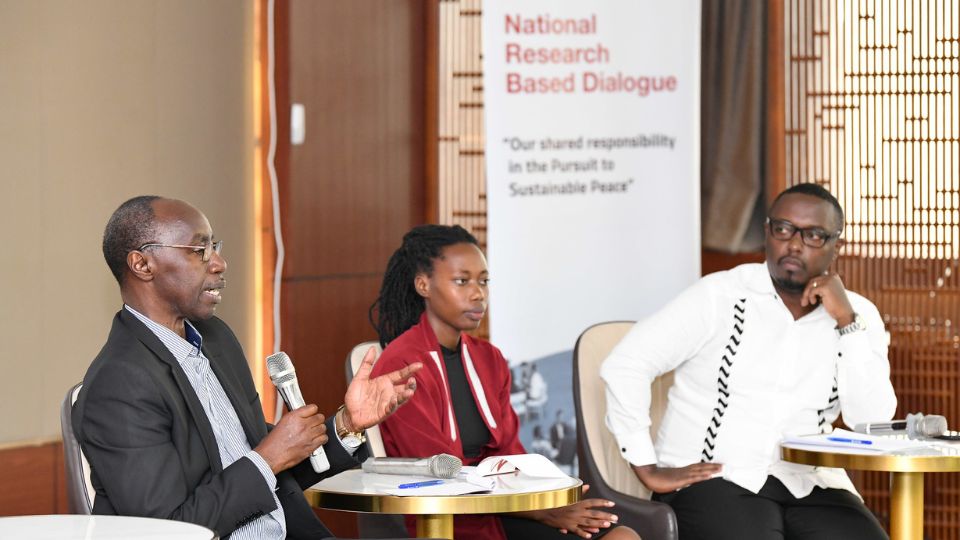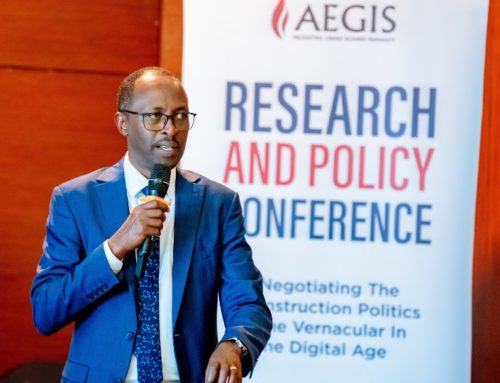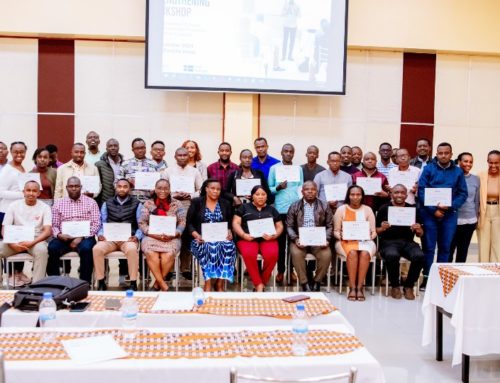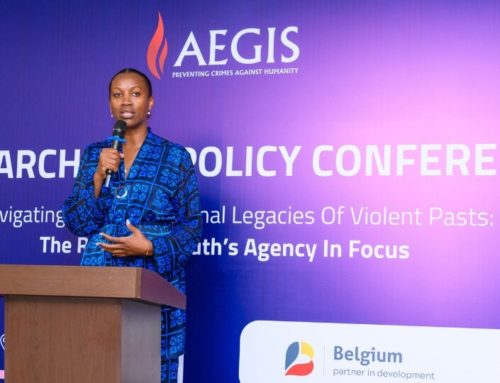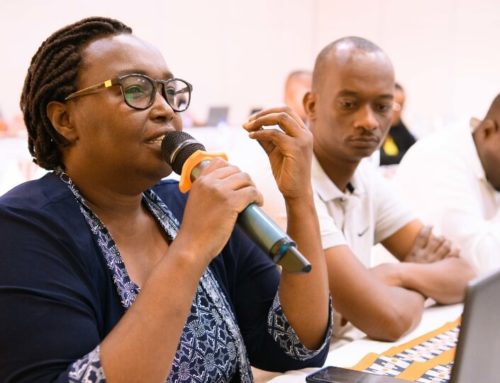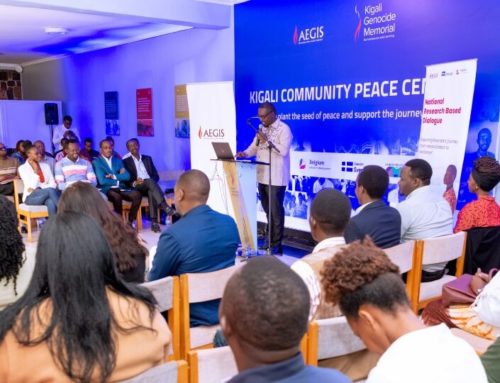On Wednesday 20 March, the Aegis Trust hosted a National Research-Based Dialogue event in Kigali. Titled “Understanding the root causes of the Genocide against the Tutsi”, the event brought researchers, young people and policymakers together to engage in dialogue, learn from one another and explore how better to bridge the gap between research and the practical application of findings in peacebuilding efforts.
Among the speakers, Ambassador Francois Xavier Ngarambe presented research entitled ‘The paradox of victims of Habyarimana’s regime becoming champions of the Genocide against the Tutsi’. He attributed this to the culture of obedience to authority, the need to belong and conform to the victorious side or group, the long-standing ideology of genocide, the overwhelming assurance of impunity, and the rewards they received after killing Tutsis.
Faustin Mafeza, a panelist from the Ministry of National Unity and Civic Engagement, shared the Ministry’s efforts to make it easier for young people to learn about Rwanda’s history. “At MINUBUMWE, we are more than convinced that if we do not take it upon ourselves to teach the youth about the history of Rwanda, the future of this country may be in jeopardy.” He added, “That is why we have come up with short stories and videos that teach young people about the history of the Genocide against the Tutsi in a setting that is familiar and comfortable to them. However, this is not enough; we also need to see the young people’s eagerness to learn and be part of preserving the memory.”
Sandra Shenge, Programme Director at the Aegis Trust, emphasised the organisation’s unwavering commitment to working with researchers to find solutions to problems facing Rwandan society.
“We are committed to working with researchers on a daily basis to help each other find solutions to problems we all face,” she said. “We also encourage the researchers we work with to find lasting answers to peace-related questions.”
As Rwanda continues its journey to greater resilience, the Aegis Trust is dedicated to educating and engaging youth in preserving and learning from history through discussions with experts and researchers in the field of memory preservation.

